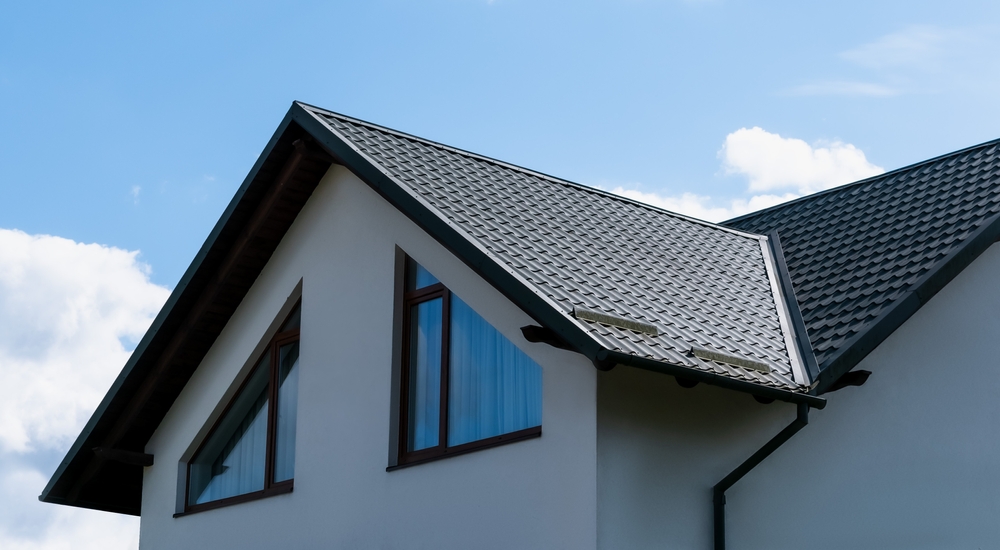Table of Contents
- Understanding Florida’s Unique Roofing Needs
- Essential Qualifications for Florida Roofers
- Licensing Requirements for Choosing a Roofer Florida
- Insurance Requirements for Roofing Contractors
- Types of Roofing Services in Florida
- How to Research and Vet Roofing Contractors
- Questions to Ask Before Hiring a Roofer
- Red Flags to Watch Out For
- Comparing Estimates and Contracts
- Choosing the Right Roofing Materials for Florida
- Understanding Warranty and Guarantee Options
- Importance of Local Reputation and References
- Post-Installation Checklist
- Conclusion
Choosing a reliable and qualified roofer in Florida is a crucial decision for homeowners and business owners alike. Florida’s unique climate—with its intense heat, heavy rainfall, and frequent hurricanes—makes it especially important to select a roofing contractor who understands the state’s building codes, weather challenges, and the best materials for the job. A poorly installed or repaired roof can lead to costly damage, leaks, and safety hazards. Therefore, knowing what to look for and how to evaluate potential roofers can save time, money, and frustration.
This comprehensive guide will walk you through everything you need to know about picking the right roofer in Florida, including essential qualifications, red flags to avoid, questions to ask, and tips for ensuring your roofing project is a success.
1. Understanding Florida’s Unique Roofing Needs
Florida’s climate and weather patterns pose specific challenges for Commercial Roofing Services Orlando systems. When picking a roofer, it’s essential to find someone familiar with these factors:
1. Hurricanes and High Winds
- Florida is prone to hurricanes, especially during the Atlantic hurricane season (June to November). Roofs must be able to withstand high wind speeds and debris impacts.
- Roofing contractors should be experienced in installing hurricane-resistant systems and meeting local wind load requirements.
2. Intense Sun and Heat
- Prolonged exposure to UV rays can degrade roofing materials.
- A qualified roofer can recommend heat-reflective materials to increase durability and energy efficiency.
3. Heavy Rainfall
- Florida’s frequent and heavy rain can lead to leaks if the roof isn’t installed or maintained properly.
- Proper drainage and waterproofing are critical elements to discuss with your contractor.
4. Humidity and Mold Growth
- High humidity levels can promote mold and mildew.
- A reputable roofer will consider ventilation and moisture control during installation.
2. Essential Qualifications for Florida Roofers
When selecting a roofer in Florida, ensure they meet these essential qualifications:
- Licensed and Certified: A valid Florida roofing contractor license (Certified or Registered).
- Experience: Look for a roofer with at least 5 years of experience working in Florida’s climate.
- Reputation: Positive reviews, testimonials, and local references.
- Insurance: Proper liability and workers’ compensation insurance.
- Compliance: Knowledge of Florida Building Codes and hurricane mitigation requirements.
- Material Expertise: Experience with different roofing materials like shingles, tiles, metal, and flat roofs.
3. Licensing Requirements for Roofers in Florida
In Florida, roofers must have a state-issued license to perform roofing work legally. There are two primary types of licenses:
1. Certified Roofing Contractor (Statewide License)
- Allows the contractor to work anywhere in the state.
- Requires passing a state exam, four years of experience, and proof of financial stability and insurance.
2. Registered Roofing Contractor (County License)
- Limited to working in specific local jurisdictions.
- Requires meeting local licensing requirements and registering with the state.
How to Verify a Roofer’s License:
- Use the Florida Department of Business and Professional Regulation (DBPR) website to check a contractor’s license status.
4. Insurance Requirements for Roofing Contractors
Roofing is a high-risk job, so proper insurance is essential. Ensure your roofer has:
- General Liability Insurance: Covers damage to your property during the project.
- Workers’ Compensation Insurance: Covers injuries to workers while on your property.
Tip: Ask for a copy of the roofer’s insurance certificate and verify its validity by contacting the insurer.
5. Types of Roofing Services in Florida
Different contractors specialize in various types of roofing services. Identify your specific needs to choose the right professional:
- New Roof Installation: For new construction or replacing an existing roof.
- Roof Repairs: Fixing leaks, damaged shingles, or structural issues.
- Roof Replacement: Complete removal and replacement of an old roof.
- Roof Inspection and Maintenance: Regular inspections to identify and address potential issues.
- Storm Damage Repair: Specializing in repairs following hurricanes or severe storms.
Also Read: Can a General Contractor Do Roofing in Florida?
6. How to Research and Vet Roofing Contractors
1. Online Reviews and Ratings
- Check platforms like Google, Yelp, BBB (Better Business Bureau), and Angie’s List.
- Look for consistent positive feedback and responses to complaints.
2. Personal Recommendations
- Ask friends, family, neighbors, and colleagues for referrals.
- Personal experiences can provide valuable insights.
3. Professional Associations
- Membership in organizations like the National Roofing Contractors Association (NRCA) or Florida Roofing and Sheet Metal Contractors Association (FRSA) is a good sign of credibility.
4. Check Previous Work
- Request a portfolio of completed projects or visit sites where the contractor has worked.
7. Questions to Ask Before Hiring a Roofer
- Are you licensed and insured?
- How long have you been in business?
- Can you provide references from past clients?
- What types of roofing materials do you specialize in?
- Do you offer a warranty for your work?
- Will you handle permits and inspections?
- What is the estimated timeline for the project?
- What measures do you take to protect my property during the job?
8. Red Flags to Watch Out For
- No License or Insurance: Avoid contractors who cannot provide proof of licensing or insurance.
- Unusually Low Bids: Extremely low estimates may indicate subpar materials or workmanship.
- High-Pressure Sales Tactics: Legitimate contractors don’t rush or pressure you into decisions.
- Lack of References: A reputable roofer should provide references upon request.
- No Written Contract: Always insist on a detailed written agreement.
9. Comparing Estimates and Contracts
When comparing estimates:
- Detailed Breakdown: Ensure each estimate includes materials, labor, permits, and disposal fees.
- Scope of Work: The contract should clearly outline the work to be done.
- Payment Terms: Avoid paying the full amount upfront. Standard practice is a deposit followed by progress payments.
- Timeline: Agree on a start and completion date.
- Warranty: Clarify the length and coverage of warranties for materials and labor.
10. Choosing the Right Roofing Materials for Florida
Florida’s climate demands durable, weather-resistant materials from Roofing Services Orlando. Common options include:
- Asphalt Shingles: Affordable and versatile but less durable in high winds.
- Metal Roofing: Highly durable, fire-resistant, and energy-efficient.
- Clay and Concrete Tiles: Excellent for withstanding hurricanes but heavier and more expensive.
- Flat Roof Systems: Common for commercial buildings; requires proper drainage.
Tip: Consult your roofer on the best materials for your specific location and budget.
11. Understanding Warranty and Guarantee Options
- Manufacturer’s Warranty: Covers defects in roofing materials.
- Workmanship Warranty: Covers installation errors by the contractor.
Important Points:
- Understand what each warranty covers and for how long.
- Get all warranties in writing.
12. Importance of Local Reputation and References
Hiring a local roofer has several advantages:
- Familiarity with Local Codes: Local contractors understand Florida’s building codes and permit requirements.
- Community Reputation: A roofer with a solid local reputation is likely to be reliable.
- Easier Follow-Up: If issues arise, local roofers are easier to contact for repairs or follow-ups.
13. Post-Installation Checklist
After your roof installation or repair:
- Inspect the Work: Ensure the work meets the agreed-upon specifications.
- Check for Clean-Up: Confirm that the contractor has removed all debris and nails.
- Review Warranty: Ensure you have copies of all warranties and guarantees.
- Final Payment: Make the final payment only after you’re satisfied with the work.
14. Conclusion
Choosing the right roofer in Florida requires careful research, verification of credentials, and understanding your specific needs. Given Florida’s unique weather challenges, it’s essential to hire a licensed, insured, and experienced contractor who can deliver quality work and stand behind it. By following the guidelines in this article—checking references, asking the right questions, and ensuring clear contracts—you can confidently Choosing a Roofer Florida who will protect your home or business for years to come.



